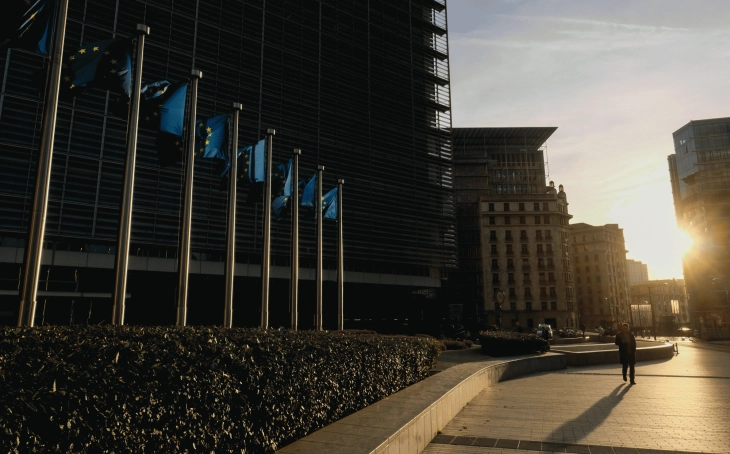EU: Bilateral issues sometimes more important than reforms

Brussels, 22 June 2022 (MIA) – The European Union has accepted that a portion of Bulgaria’s bilateral demands are incorporated in the negotiating framework and considers it a normal thing, MIA reports from Brussels.
Ahead of the meeting of leaders of the EU and Western Balkans on Thursday, diplomats from EU member-states and the Council are intensively briefing journalists on issues set to be on the table, such as the Kosovo visa liberalization and the Bosnia and Herzegovina candidate status but dominating are the ones related to the start of the accession negotiations with North Macedonia that have been blocked by Bulgaria, also holding Albania hostage.
A senior EU diplomat well acquainted with the negotiating framework and the French proposal for overcoming the Skopje-Sofia dispute has told MIA that bilateral issues are part of the framework, saying this is “normal”.
“Bilateral issues are part of the enlargement process,” explains the diplomat.
Asked if it is normal to set a precedent with North Macedonia by incorporating bilateral issues of an EU member-state, the diplomat said this risk exists.
“This risk exists and it is sometimes more important than reforms. It is part of the rules, otherwise we cannot have harmonious relations. The proposal on the table seems to be one that could be acceptable, neither Skopje nor Sofia are satisfied, which is a sign for the EU that the agreement is a good one,” said the diplomat.
EU leaders and Council President Charles Michel are waiting for the outcome of this evening’s no-confidence vote of the Bulgarian government but they all welcomed the fact that opposition party GERB has said it would support the agreement on the negotiating framework, even if PM Petkov’s cabinet is toppled.
The EU finds it important to deliver negotiations with North Macedonia and Albania in the coming weeks, so that the stalling enlargement process is given credibility, especially considering that Ukraine is given candidate-status. Diplomats in Brussels do not go into the details of the Skopje-Sofia dispute and want to give the green light at any cost in the coming days.
A Government delegation led by Prime Minister Dimitar Kovachevski is arriving this afternoon in Brussels to take part at tomorrow’s meeting of Union and Western Balkans leaders, and it is uncertain if he will accept the proposed negotiating framework.







